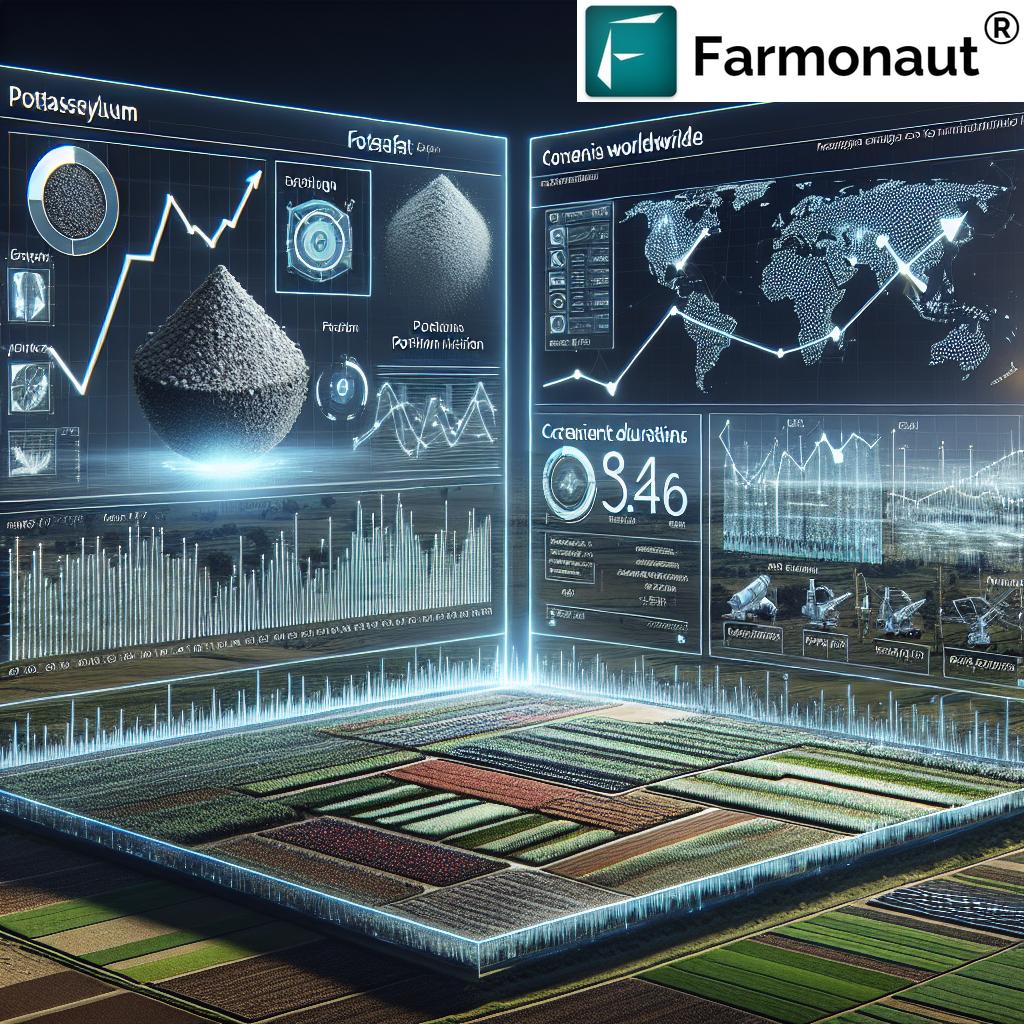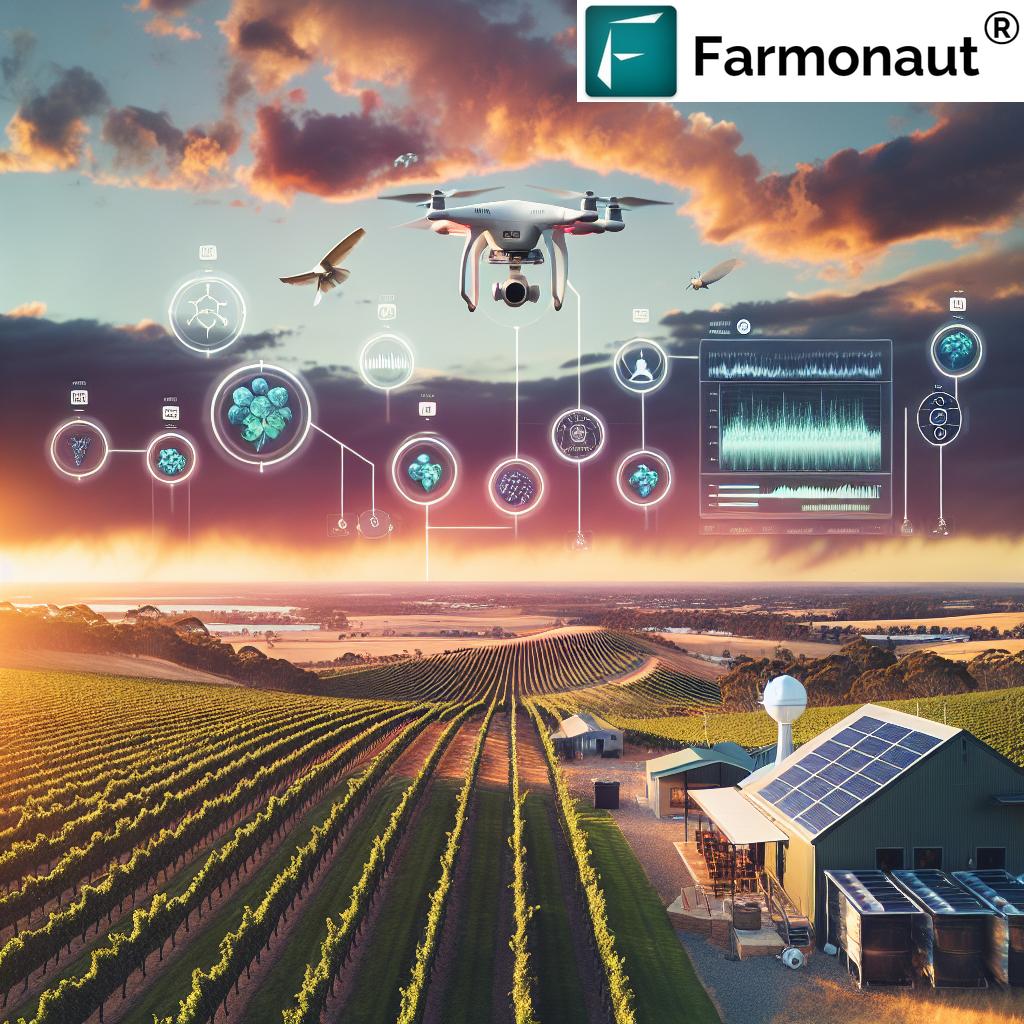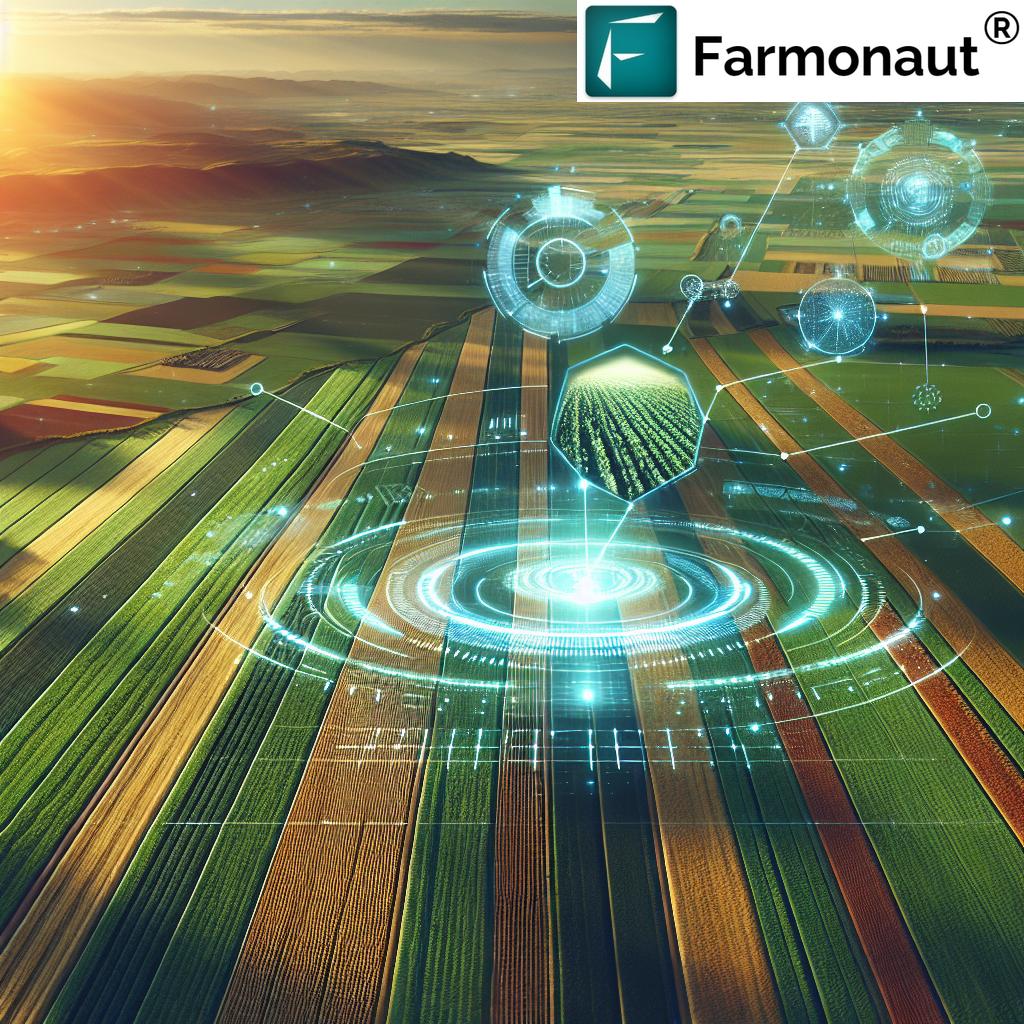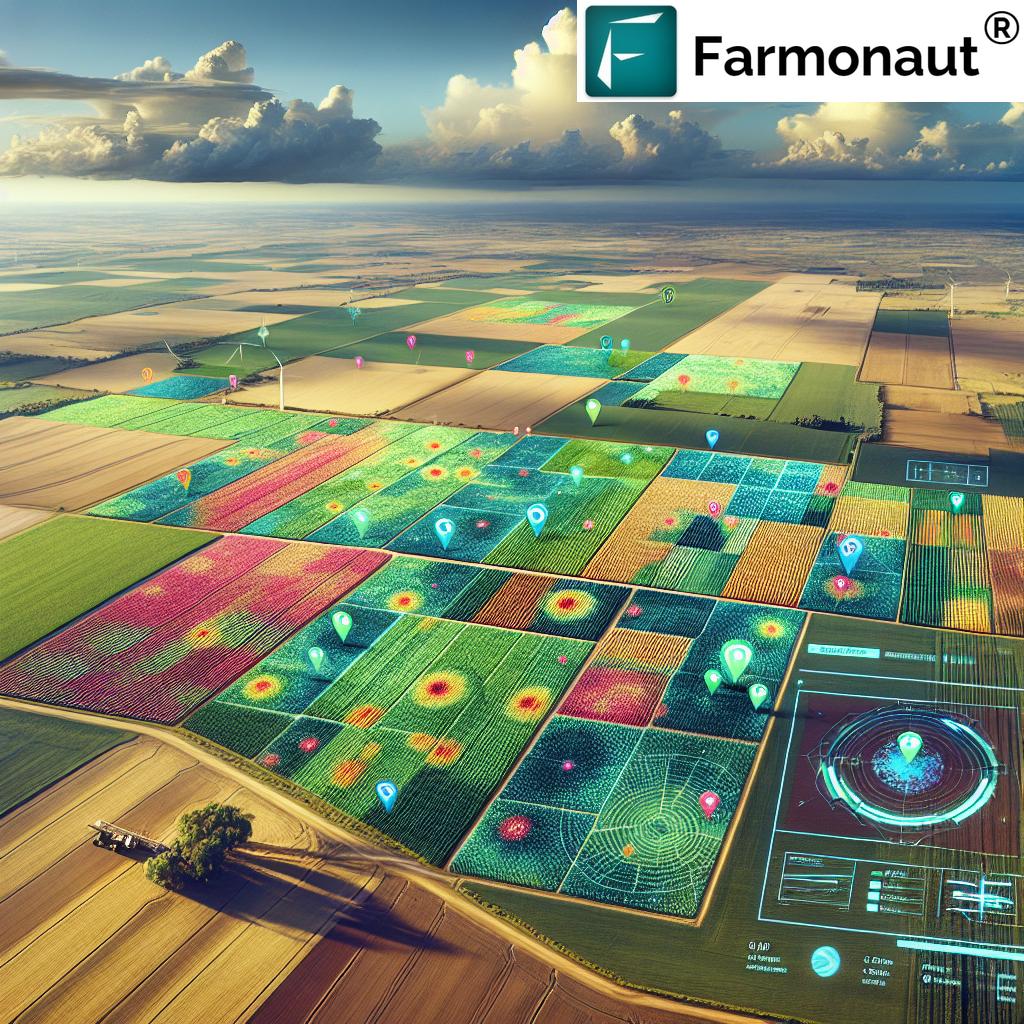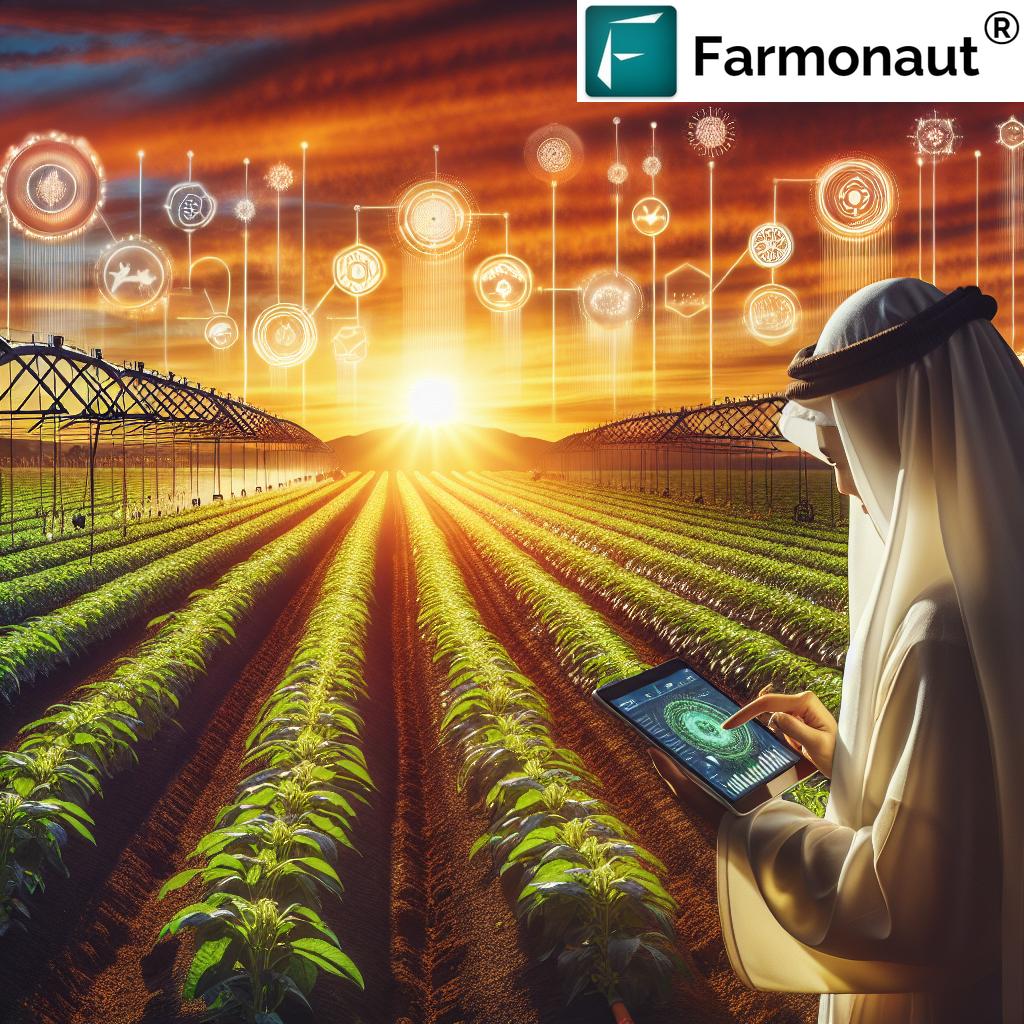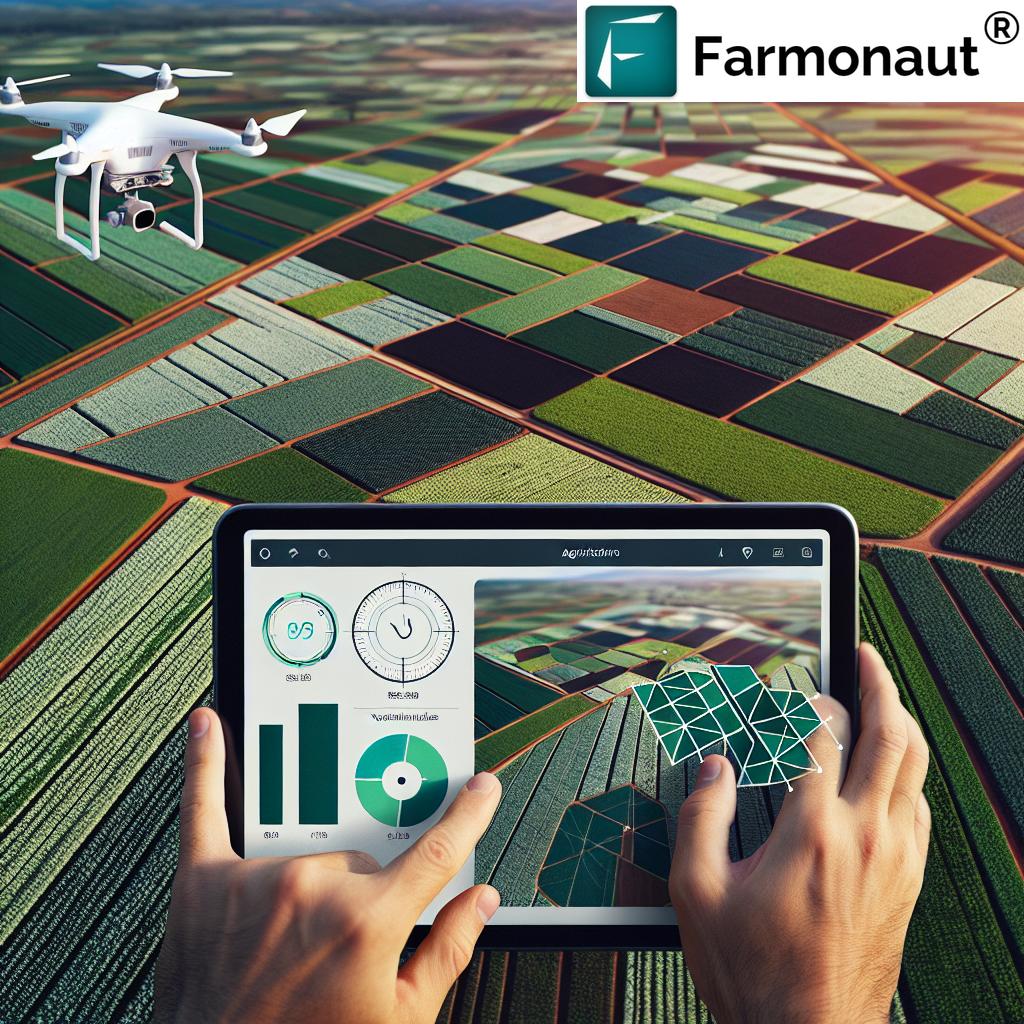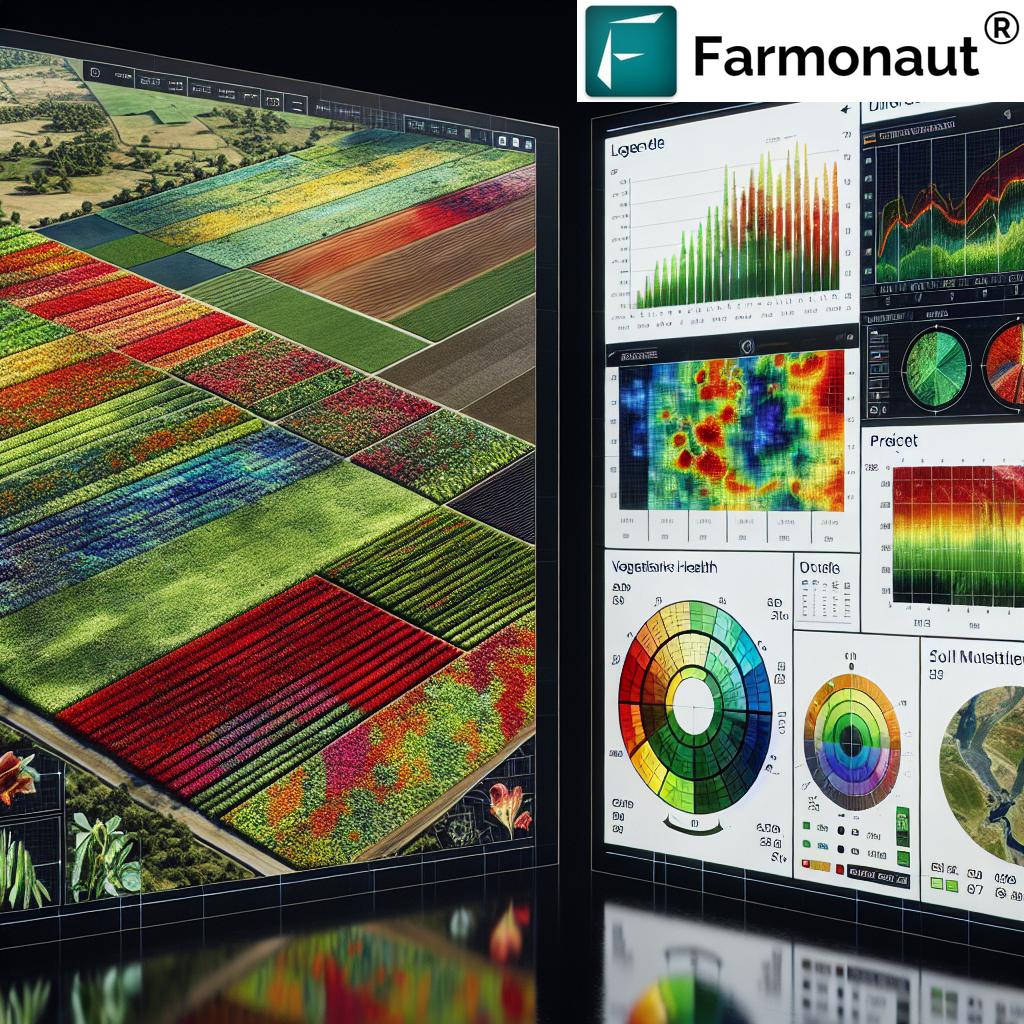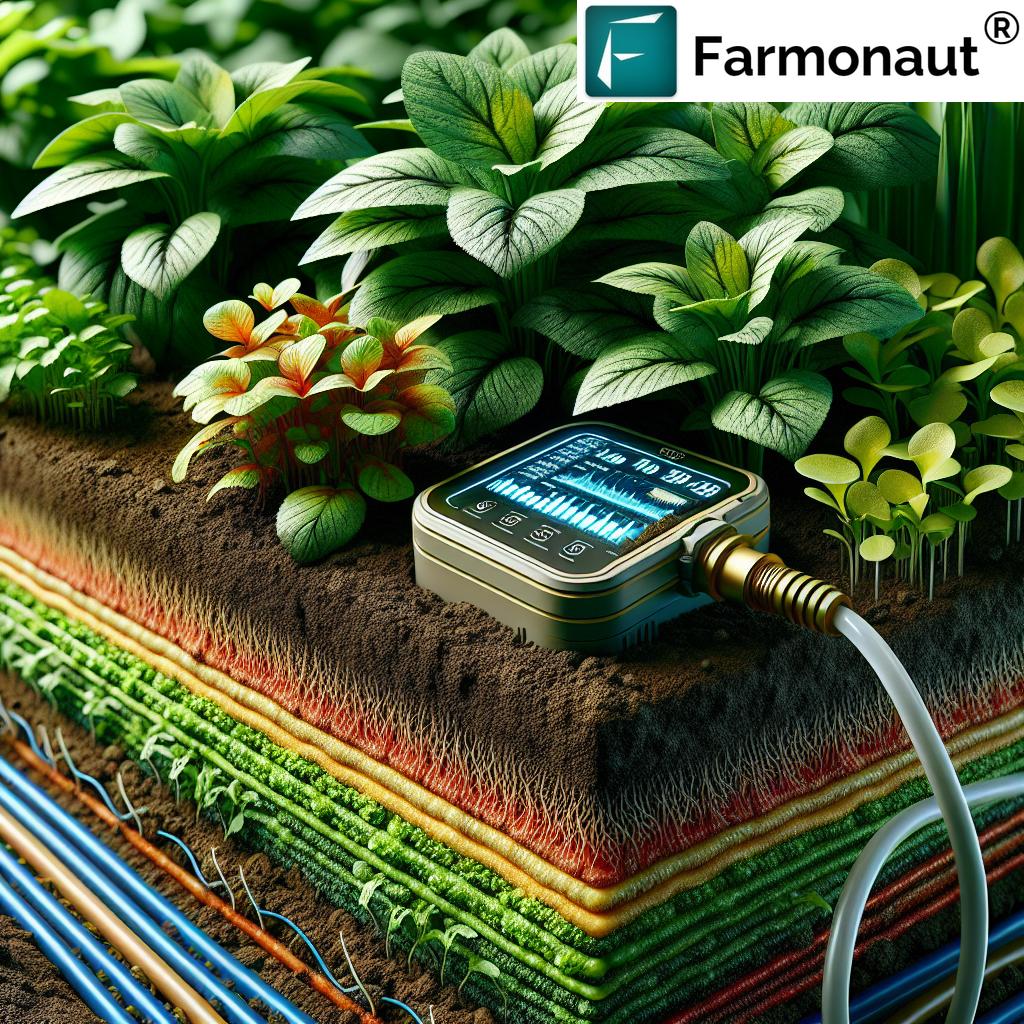Revolutionizing Agriculture: How Soil Moisture Probes Boost Crop Yields and Optimize Irrigation
In the ever-evolving world of agriculture, we’re witnessing a remarkable transformation in how farmers manage their crops and resources. At the forefront of this revolution are soil moisture probes, powerful tools that are reshaping irrigation practices and boosting crop yields. In this comprehensive guide, we’ll explore how these innovative devices are changing the face of modern farming, offering unprecedented insights into soil conditions and empowering farmers to make data-driven decisions.
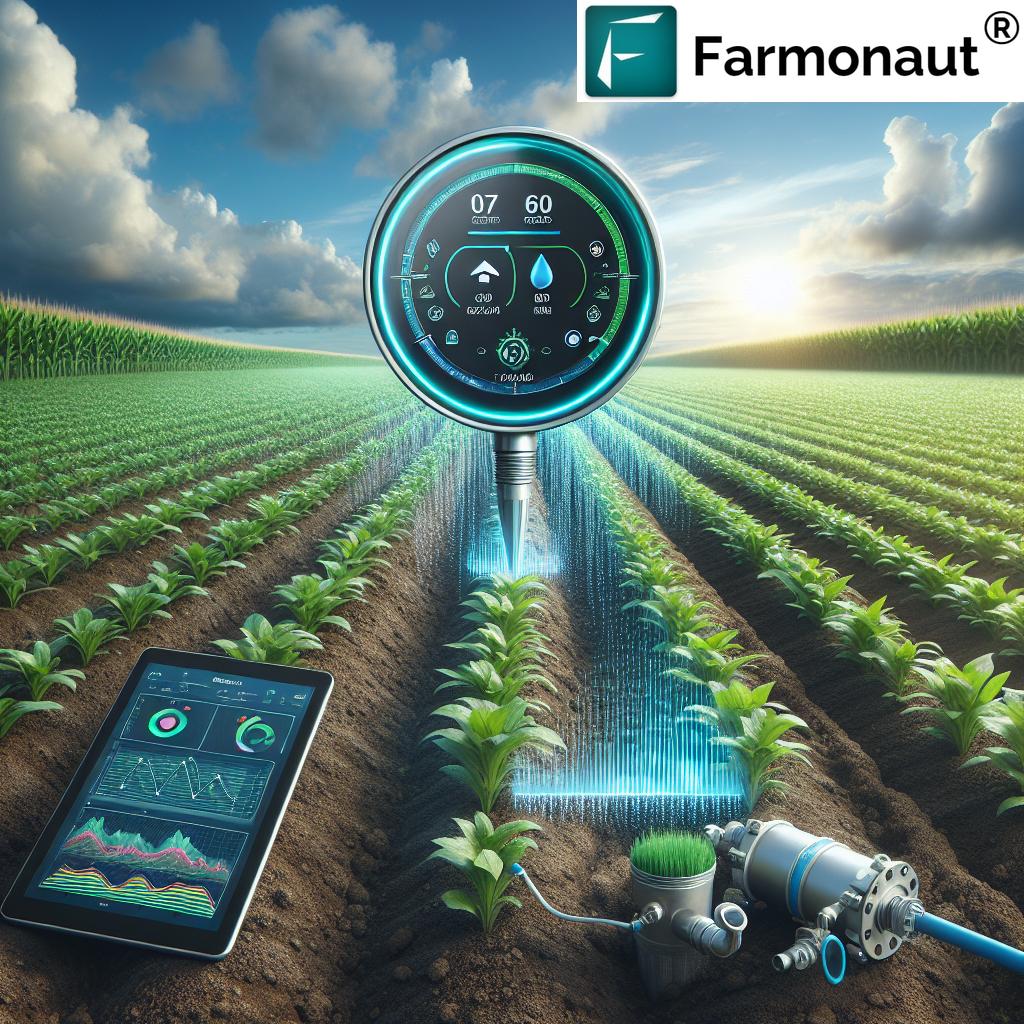
“Soil moisture probes can reduce water waste by up to 30% in agricultural irrigation systems.”
The Rise of Precision Agriculture
Precision agriculture has emerged as a game-changer in the farming industry, and soil moisture probes are at its core. These advanced sensors provide real-time data on soil moisture levels, enabling farmers to make informed decisions about irrigation timing and quantity. By leveraging this technology, we’re seeing a significant shift towards more efficient and sustainable farming practices.
- Improved water management
- Optimized crop growth
- Reduced environmental impact
- Enhanced resource efficiency
With the integration of soil probes into farm management systems, we’re witnessing a new era of data-driven agriculture. This technology is not just about conserving water; it’s about maximizing crop yields while minimizing resource use.
Understanding Soil Moisture Probes
Soil moisture probes are sophisticated devices designed to measure the water content in soil with high accuracy. These probes use various technologies to provide precise measurements, including:
- Time Domain Reflectometry (TDR)
- Frequency Domain Reflectometry (FDR)
- Capacitance sensors
Each type of probe has its unique advantages, but they all serve the same crucial purpose: to give farmers a clear picture of soil moisture conditions at different depths. This information is vital for making irrigation decisions that promote optimal plant growth and health.
How Soil Moisture Probes Work
Soil moisture probes operate on the principle of measuring the dielectric constant of the soil. Water has a much higher dielectric constant than soil particles, so changes in soil moisture content significantly affect the probe’s readings. Here’s a simplified breakdown of the process:
- The probe sends an electrical signal into the soil
- The signal’s behavior changes based on the soil’s moisture content
- The probe measures these changes and converts them into soil moisture data
- This data is then transmitted to a central system for analysis
By placing probes at various depths and locations across a field, farmers can create a comprehensive moisture map of their land. This detailed information allows for precise irrigation management, tailored to the specific needs of different crop types and soil conditions.
The Benefits of Soil Moisture Management
Implementing soil moisture probes as part of a comprehensive soil moisture management strategy offers numerous benefits for farmers and the environment alike:
- Water Conservation: By providing accurate soil moisture data, probes help farmers avoid over-irrigation, leading to significant water savings.
- Improved Crop Health: Optimal soil moisture levels promote better root development and nutrient uptake, resulting in healthier plants.
- Increased Yields: Proper irrigation based on soil probe data can lead to substantial increases in crop yields.
- Reduced Disease Risk: Maintaining ideal soil moisture conditions helps prevent water-related plant diseases.
- Energy Savings: By optimizing irrigation schedules, farmers can reduce energy consumption associated with pumping water.
These benefits not only improve the bottom line for farmers but also contribute to more sustainable agricultural practices overall.
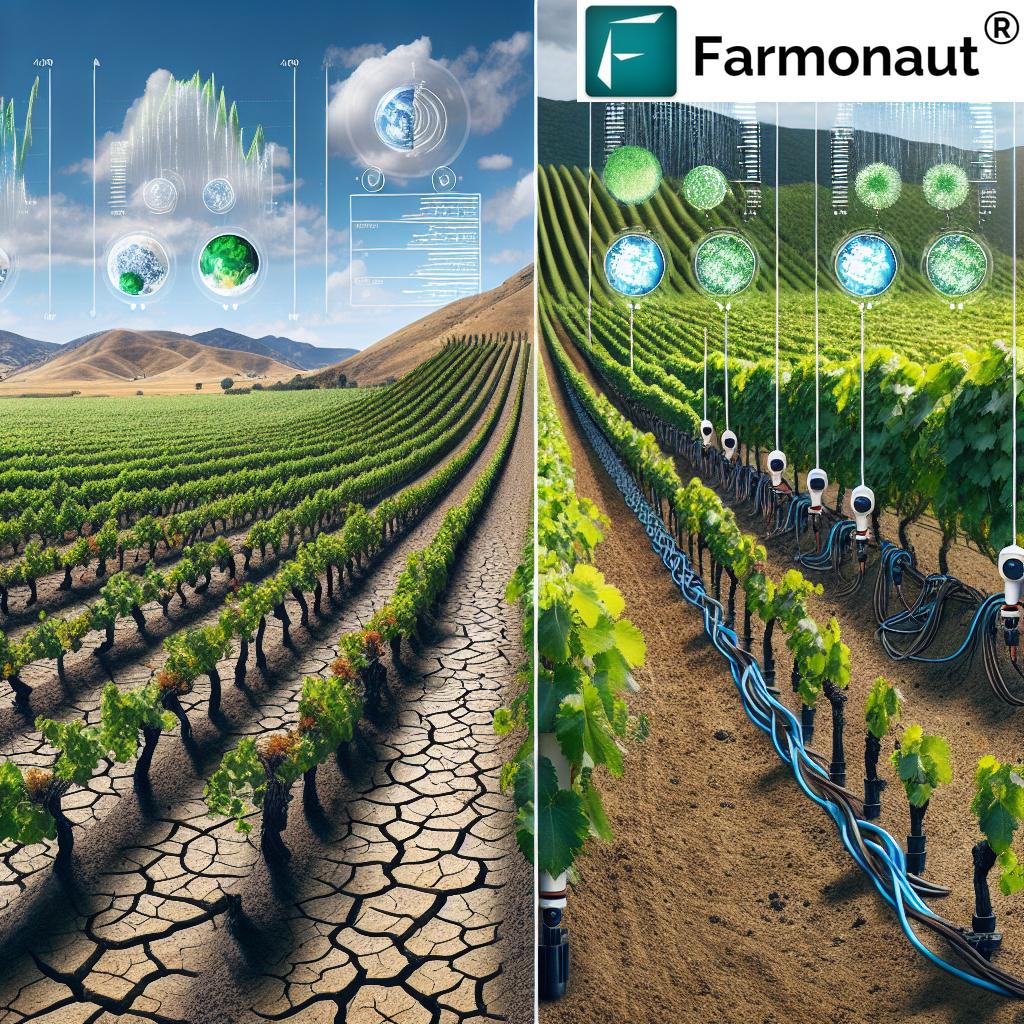
Integrating Soil Probes with Farm Management Software
The true power of soil moisture probes is unleashed when they’re integrated with comprehensive farm management software. This integration allows for:
- Real-time data visualization
- Automated irrigation scheduling
- Historical data analysis
- Predictive modeling for future irrigation needs
At Farmonaut, we understand the importance of seamless integration between soil probes and farm management systems. Our platform is designed to work with a wide range of soil moisture sensors, providing farmers with a unified interface for all their agricultural data needs.
Variable Rate Irrigation
One of the most exciting applications of soil moisture probe data is in variable rate irrigation (VRI) systems. VRI allows farmers to apply different amounts of water to different parts of their fields based on soil moisture levels, crop needs, and other factors. This precision approach to irrigation can lead to:
- Optimized water use efficiency
- Improved crop uniformity
- Reduced runoff and nutrient leaching
- Better management of different soil types within a single field
By leveraging soil probe data in VRI systems, farmers can ensure that each part of their field receives exactly the amount of water it needs, no more and no less.
The Role of Artificial Intelligence in Soil Moisture Management
Artificial Intelligence (AI) is playing an increasingly important role in interpreting and acting on soil moisture data. AI algorithms can analyze vast amounts of data from soil probes, weather forecasts, and other sources to provide highly accurate irrigation recommendations.
These AI-driven systems can:
- Predict future soil moisture conditions
- Optimize irrigation schedules based on crop growth stages
- Identify potential issues before they become problems
- Continuously learn and improve their recommendations over time
At Farmonaut, our AI-powered advisory system, Jeevn AI, incorporates soil moisture data to provide personalized recommendations for optimal crop management.
“Real-time soil moisture data from probes can increase crop yields by 15-20% through optimized irrigation.”
Best Practices for Soil Probe Placement and Calibration
To get the most out of soil moisture probes, proper placement and calibration are crucial. Here are some best practices to consider:
- Strategic Placement: Install probes in representative areas of your field, considering soil type variations and topography.
- Multiple Depths: Use probes that can measure moisture at different soil depths to get a complete picture of the root zone.
- Regular Calibration: Calibrate your probes periodically to ensure accuracy, especially when soil conditions change.
- Proper Installation: Follow manufacturer guidelines for installation to avoid air gaps and ensure good soil contact.
- Data Validation: Cross-check probe readings with physical soil samples to verify accuracy.
By following these practices, farmers can ensure they’re getting reliable, actionable data from their soil moisture probes.
Overcoming Challenges in Soil Moisture Probe Adoption
While soil moisture probes offer significant benefits, there are challenges to their widespread adoption. Some common issues include:
- Initial cost of equipment
- Learning curve for interpreting data
- Integration with existing irrigation systems
- Maintenance and durability concerns
To address these challenges, we at Farmonaut are committed to providing comprehensive support and education to farmers adopting this technology. Our platform is designed to be user-friendly and integrates seamlessly with a wide range of soil probe systems.
The Future of Soil Moisture Management
As we look to the future, the role of soil moisture probes in agriculture is only set to grow. Emerging trends include:
- Integration with IoT (Internet of Things) devices for even more comprehensive farm monitoring
- Advanced machine learning algorithms for predictive soil moisture modeling
- Development of more durable and long-lasting probe technologies
- Increased use of wireless and solar-powered probes for easier deployment
These advancements will make soil moisture management even more accessible and effective for farmers of all scales.
Soil Moisture Probes and Sustainable Farming
The adoption of soil moisture probes aligns perfectly with the growing emphasis on sustainable farming practices. By optimizing water use and reducing waste, these tools help farmers:
- Conserve precious water resources
- Reduce energy consumption associated with irrigation
- Minimize nutrient runoff and soil erosion
- Improve overall soil health and biodiversity
As climate change continues to impact agricultural regions worldwide, the ability to precisely manage soil moisture becomes increasingly critical for food security and environmental stewardship.
Comparison of Irrigation Methods
| Irrigation Method | Water Usage Efficiency (%) | Crop Yield Increase (%) | Soil Moisture Management Capability |
|---|---|---|---|
| Flood Irrigation | 40-50 | Baseline | Low |
| Sprinkler Irrigation | 60-70 | 5-10 | Moderate |
| Drip Irrigation | 80-90 | 15-25 | High |
| Precision Irrigation with Soil Probes | 90-95 | 20-30 | Very High |
This table clearly illustrates the superior efficiency and yield improvements offered by precision irrigation systems that utilize soil moisture probes.
Case Studies in Soil Moisture Probe Success
While we can’t provide specific case studies, numerous research papers and field trials have demonstrated the effectiveness of soil moisture probes in various agricultural settings. Common findings include:
- Water savings of 20-30% compared to traditional irrigation methods
- Yield increases of 10-25% across various crop types
- Significant reductions in energy costs associated with irrigation
- Improved crop quality and uniformity
These results highlight the transformative potential of soil moisture probe technology in modern agriculture.
Integrating Soil Moisture Data with Other Agricultural Technologies
To maximize the benefits of soil moisture probes, it’s essential to integrate their data with other agricultural technologies. This holistic approach can include:
- Satellite imagery for crop health monitoring
- Weather forecasting systems for predictive irrigation
- Crop growth models for optimized resource allocation
- Precision fertilizer application based on soil moisture levels
At Farmonaut, we specialize in integrating various data sources to provide comprehensive farm management solutions. Our platform combines soil moisture data with satellite imagery, weather forecasts, and AI-driven analytics to offer unparalleled insights into farm operations.
For developers looking to integrate soil moisture and other agricultural data into their applications, check out our API and API Developer Docs.
The Economic Impact of Soil Moisture Probes
Implementing soil moisture probes can have a significant positive impact on a farm’s bottom line. While there is an initial investment in equipment and setup, the long-term benefits often outweigh the costs:
- Reduced water and energy costs
- Increased crop yields and quality
- Lower labor costs through automation
- Potential for premium prices for sustainably grown produce
Farmers who adopt this technology often see a return on investment within a few growing seasons, making it a sound financial decision for many agricultural operations.
Conclusion: Embracing the Future of Agriculture
As we’ve explored throughout this article, soil moisture probes are at the forefront of a revolution in agricultural practices. By providing precise, real-time data on soil conditions, these innovative tools are enabling farmers to make informed decisions that optimize crop yields, conserve resources, and promote sustainable farming practices.
The integration of soil moisture probes with advanced farm management software, AI-driven analytics, and other precision agriculture technologies is paving the way for a more efficient, productive, and environmentally friendly approach to farming. As climate change and water scarcity continue to pose challenges to global agriculture, the role of soil moisture management will only become more critical.
At Farmonaut, we’re committed to supporting farmers in this transition to data-driven agriculture. Our platform offers comprehensive solutions for soil moisture management, crop health monitoring, and farm optimization. By leveraging the power of satellite technology, AI, and real-time data analytics, we’re helping farmers around the world embrace the future of agriculture.
As we look ahead, the continued development and adoption of soil moisture probe technology promise to play a vital role in ensuring food security, conserving natural resources, and building a more sustainable agricultural sector for generations to come.
FAQs
- Q: How accurate are soil moisture probes?
A: Modern soil moisture probes can be highly accurate, with many offering accuracy within 1-3% of actual soil moisture content when properly calibrated and installed. - Q: How often should soil moisture probes be calibrated?
A: Calibration frequency depends on soil type and environmental conditions, but generally, it’s recommended to calibrate probes at least once per growing season or when soil conditions change significantly. - Q: Can soil moisture probes work in all types of soil?
A: Most soil moisture probes can work in a variety of soil types, but some may require specific calibration for different soil textures. It’s important to choose a probe that’s suitable for your specific soil conditions. - Q: How do soil moisture probes integrate with existing irrigation systems?
A: Many modern soil moisture probes can be integrated with automated irrigation controllers, allowing for direct control of irrigation based on soil moisture readings. Some systems also offer wireless connectivity for easy integration with farm management software. - Q: What is the typical lifespan of a soil moisture probe?
A: The lifespan of a soil moisture probe can vary depending on the quality of the device and environmental conditions. High-quality probes can last 5-10 years or more with proper maintenance.










